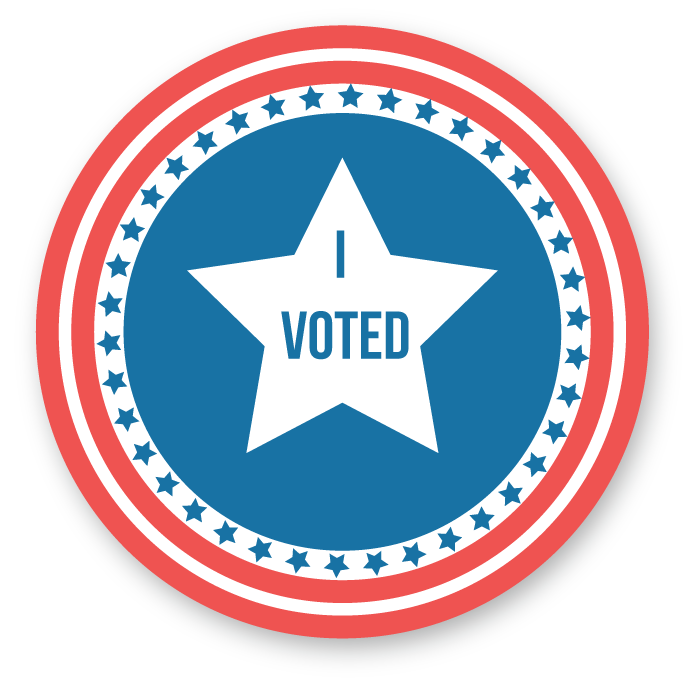Inherent to being a citizen of the United States is the freedom not to practice one’s rights. One can refuse their right to free speech by remaining silent and refuse their right to remain silent by speaking. This is also true of voting. While there are many efforts geared at encouraging higher rates of participation in U.S. elections, it is perfectly legal for a person to turn in a partially filled out ballot, or not turn in a ballot at all.
But what if refusing to vote was against the law? While the idea might seem far-fetched to those of us in the United States, there are laws in countries around the globe stipulating that a citizen must vote. They are known as “compulsory voting laws” and they are in the rulebooks of many nations, including Australia, Belgium, Brazil, Greece, and our neighbor to the south, Mexico, to name a few. And the United States might become part of that list. In fact, in a 2015 speech, President Barack Obama gave serious thought to the benefit of such laws, which makes one wonder if they ever could successfully be implemented in the United States.
But what do the requirements of compulsory voting actually look like? For the most part, the word “compulsory” is a bit of a misnomer, as these laws don’t force a person to pick between candidates, or vote yay or nay on any given issue. Under these laws, a person may still abstain from voting. In other words, a person is allowed to turn in a blank ballot, but they must turn in a ballot. Furthermore, of the 22 nations that implement compulsory voting laws, none of them enforce severe punishments for breaking these laws. In Brazil, which has the harshest penalties, a non-voter is fined the equivalent of $170. In other countries like Mexico, there is no penalty for breaking the compulsory voting law. It’s understandable why these countries don’t enforce severe punishments; such punishments would run contrary to the purpose of these laws, which is to encourage citizens to be informed about and active in politics.
Having an informed public that is active in politics seems like a wonderful goal, especially for countries such as the United States, where the U.S. Census Bureau reported that only 55.7 percent of the voting-age public participated in the 2016 election between Hillary Clinton and Donald Trump. BBC reported that the last federal election in Australia—a country with compulsory voting—boasted a 94% voter turnout. Such high turnout rates are common among nations with compulsory voting, so in theory these laws would solve the problem of low voter involvement in U.S. elections. Higher voter turnout could radically change the face of politics in this nation, because elections would better represent the entirety of the U.S. population. A more even representation could lead to political candidates who are more willing to work across party lines, as there would be a greater emphasis on working to represent the whole of the nation, as opposed to working for certain demographics at the exclusion of others. This in turn could counteract some of the profound hostility that has arisen from the current two-party system, and create a greater sense of community within politics. But voter turnout is only half the purpose of compulsory voting. While it seems inarguable that these laws are effective in getting the public to the polls, whether or not these laws actually encourage that public to be more informed is up for debate.
It is reasonable to think that a person who must vote would be more interested in informing themselves about the issues and candidates up for election than a person who could afford to miss said election. Research conducted in late 2015 by political analyst Jill Sheppard at the Australian National University suggests that this is in fact the case. Sheppard’s research indicates a better common understanding of political issues among citizens living in countries that enforce compulsory voting laws than among those living in countries that don’t enforce or don’t have these laws. Furthermore, the research showed a far smaller gap in political knowledge between classes and education levels when participants were from nations with compulsory voting. Such gaps in class and education levels have plagued the U.S. democratic system for some time. Sheppard’s study alone, of course, is not solid proof that compulsory voting would fix all the problems of our democracy, but the study does show compulsory voting as a viable option. Even if a better informed republic didn’t lead to more civilized political dialogue, it could increase political dialogue between individuals with differing political views; when a person is more likely and better able to converse with a wider demographic of voters, that person will naturally be confronted with more arguments against their beliefs, thus encouraging them to have the best possible understanding of their own political convictions. When one can rely on solid, trustworthy facts, they don’t need to depend so heavily on inflammatory rhetoric or the loudness of their own voice to win arguments.
This all leaves one important question to be answered: if compulsory voting laws successfully increase the rate of voter turnout and create a more politically informed society, then why aren’t they the standard in all democratic countries? It is worth noting that, according to a listing published by U.S. News, of the countries with the highest voter turnout in the world, the top six are all countries without compulsory voting laws. The truth is that democracy, as far as human history shows us, has no clearly defined path of absolute success; what works for one democracy might not work as well for another. While compulsory voting laws seem to be working in places such as Australia and Belgium, there are several nations which have abandoned these laws after they failed to achieve the desired results. Austria, Chile, Italy, and Switzerland are all successful democracies that tried and did away with compulsory voting. But rather than be weary of compulsory voting because of the instances where it has not worked, we should be open minded and curious about the instances in which it has worked. Simply requiring citizens to vote, and penalizing them when they do not, is not a system that alone would work in the United States; however, because of the benefits that compulsory voting could bring to our democracy, it is worth considering as one part of a larger solution to increase voter participation and encourage a society of informed voters within the United States.
This article originally appeared in the print edition of our June 2018, issue.





